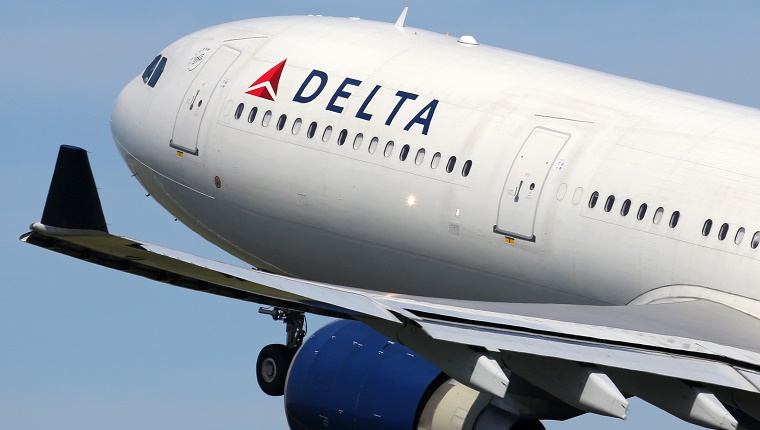Delta Air Lines Inc reported today its first first-quarter loss in nine years and forecast a 90% decline in second-quarter revenue as the coronavirus crisis devastates air travel demand.
In a matter of months, U.S. airlines like Delta have gone from expansion to survival, searching for ways to raise and save as much cash as possible in an environment where flight cancellations outnumber new bookings.
Atlanta-based Delta swung to a $534 million net loss in the first quarter that ended March 31, or a $0.84 loss per share, from a $730 million net profit a year earlier.
Total operating revenues fell 18% to $8.59 billion, with the airline burning $100 million per day at the end of March as it continued to operate previously-scheduled flights that were nearly empty.
The last time the airline posted a first-quarter loss was in March 2011, when it lost $318 million, according to Refinitiv data.
Between April and June, Delta is reducing its flight schedule by about 85%, including an 80% cut for domestic flights and 90% for international flights, which experts expect will be the slowest to recover.
The capacity cuts – in addition to other measures including executive pay reductions and unpaid leaves – should slow the airline’s daily cash burn to about $50 million by the end of June, it said, with total expenses also declining by about 50%, or $5 billion, in the second quarter.
Delta, the first U.S. airline to post first-quarter results, is among those receiving a government bailout meant to cover six months of payroll on the condition that it not lay off employees until October and retain a certain number of flights.
It received half of its $5.4 billion payroll aid on Monday; the remainder will arrive over April, May and June.
Between that money, cost-saving steps and capital raisings, Delta expects to end June with $10 billion in liquidity, up from $6 billion in March.
The airline is also considering applying for an additional $4.6 billion in secured government loans under the CARES Act, it said.
Airlines could benefit in the coming quarter from a recent plunge in oil prices, though with so few planes flying the impact may not be substantial.
Delta’s fuel expenses decreased 19% in the first quarter compared with a year earlier. It paid $1.81 per gallon, including a $29 million benefit from its refinery.
Delta has parked more than 650 aircraft in the midst of the crisis. Some of those jets may never fly again as airlines look to downsize and retire older planes.






